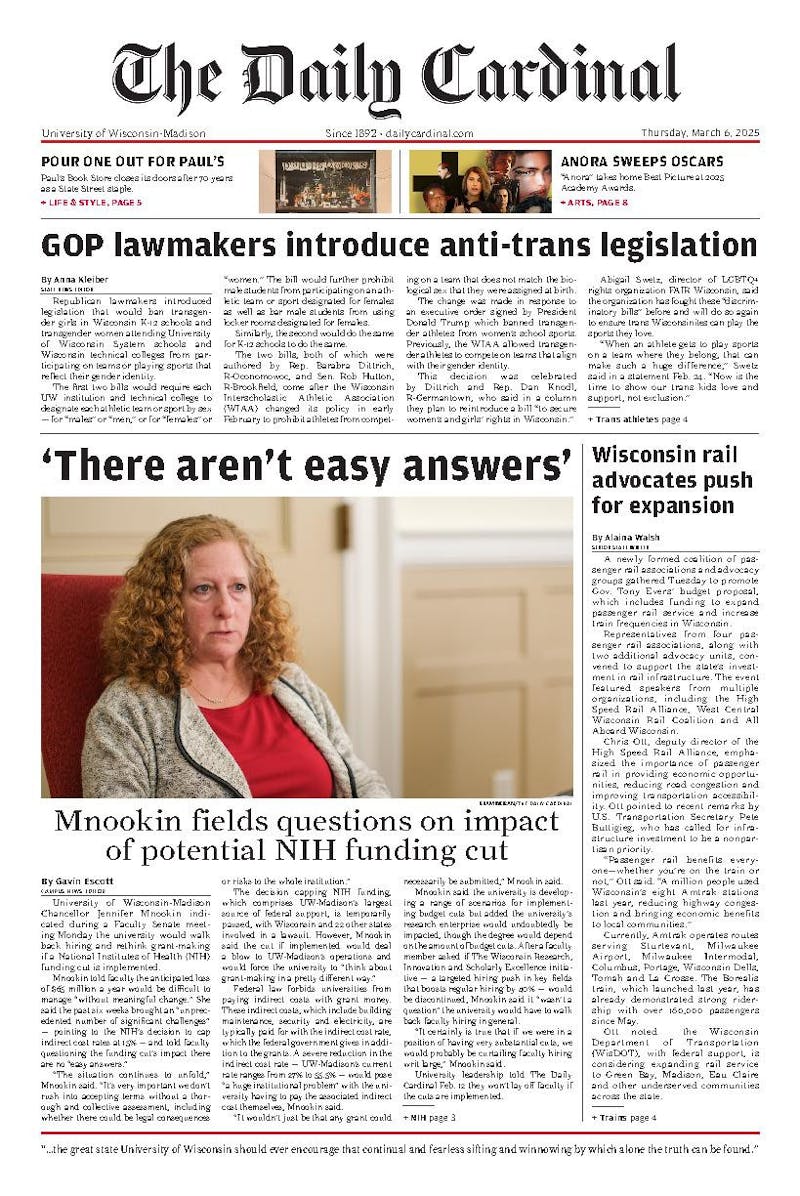While searching for ways to fill a gap year before medical school, University of Wisconsin-Madison alumnus and aspiring physician Jeff Mahlum never imagined he'd find such a perfect fit in the Center for Patient Partnerships' patient advocacy program.
CPP is a program that is affiliated with multiple University of Wisconsin schools and is dedicated to providing free advocacy services to the disabled and those with life-threatening illness. One of these services is to provide patients with a personal patient advocate. According to the CPP's website, these advocates are usually professional, graduate and returning students, or students looking to fill a gap year like Mahlum. The goal of the program is to educate students in providing patient centered care.
In order to successfully complete the program, students enroll in introductory classes and perform research for a capstone project. Students also serve as a patient advocate for the duration of their time spent in the program. Mahlum was assigned five cases during his time as an advocate, which lasted about four months.
A unique aspect of the CPP is the advocacy services are not restricted to patients in Wisconsin. Many of the patients are from out-of-state and may never meet with their advocates in person. While this may seem strange, “even without a face-to-face connection, you can still build a good working relation with a patient,” Mahlum said.
As a patient advocate, a student will help a patient to navigate the healthcare system and address other obstacles they must face due to their disability or illness. “Part of being an advocate is to provide information about clinical trials, to work with physicians to understand a patient's diagnosis and to build capacity and empower them to make the best decisions for themselves and their family,” Mahlum said.
Mahlum gained a special insight into the difficulties patient's face after experiencing an accident himself. In July of 2011, a diving accident left Mahlum paralyzed from the chest down. After his accident, Mahlum required an Functional Electrical Stimulation bike, a special piece of equipment that stimulates leg muscles through electrodes which allows the user to pedal the bike. Regular use of an FES bike can help prevent muscle deterioration and improve bone health. However, Mahlum's insurance did not cover the cost of a $15,000 FES bike.
“It is something that most insurance won't cover, but with it you can prevent lots of different health conditions. It is short-sided on their [insurance companies] part. It may be $15,000 up-front, but if a patient doesn't have this type of equipment their medical bills down the line will probably be a lot more that $15,000,” Mahlum said.
Lack of coverage for preventive care or access to preventive care is a common theme for those with disabilities. The struggles most patients face when trying to receive preventive and primary care inspired Mahlum's capstone project, which focused on the structural barriers physically disabled patients face when trying to receive care. More specifically, he focused on the availability of height adjustable exam tables and wheelchair accessible weight scales in primary care clinics.
Mahlum surveyed 200 primary care clinics in Wisconsin and found that only 62 percent had height adjustable exam tables. Only 19 percent had wheelchair accessible scales. Clinics that did have height adjustable exam tables or wheelchair accessible scales may have only had one in the entire clinic, which is not conducive to providing widespread care to physically disabled patients. Some clinics Mahlum surveyed were not wheelchair accessible at all, completely cutting of health care access to disabled patients.
“The lack of this type of equipment prevents patients from receiving equal care or any care at all. If a patient cannot get up onto an exam table, they may not receive as thorough of an exam as an able-bodied patient. Without wheelchair accessible scales, patients may not be able to get an accurate weight measurement,” Mahlum said.
Mahlum is not sure why most clinics do not possess basic equipment that is necessary to provide health care to disabled patients. He says the American Disability Act actually provides tax incentives for health care providers to install equipment like height adjustable exam scales and wheelchair accessible scales.
“If primary care is not accessible to patients, it makes you wonder about the type of specialized care that is available to patients as well,” Mahlum said.
According to Mahlum, the disparities disabled patients face in the healthcare system are due to an overall lack of awareness of the barriers that disabled patients face. Mahlum hopes that raising awareness of the lack of healthcare available to disabled patients will help remedy the issue.





